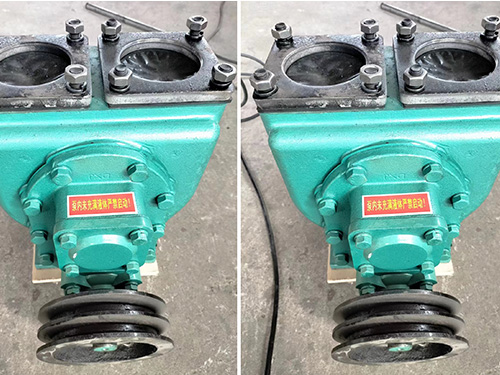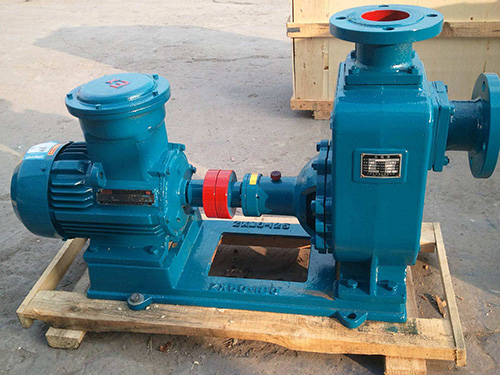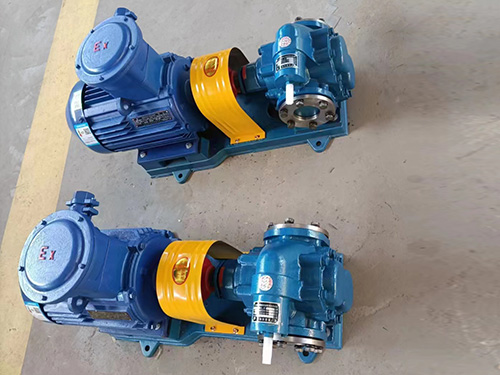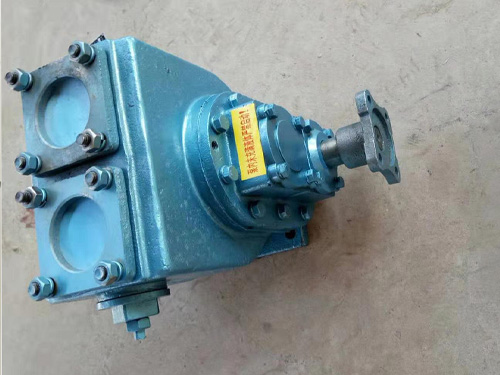Research Report on the Characteristics and Applications of High Viscosity Pumps
2025-01-13 07:38:41
1、 Research background
As a key equipment used in the industrial field to transport high viscosity fluids, high viscosity pumps play an important role in many industries. With the continuous development of industrial production, there is an increasing demand for research on the performance, characteristics, and application scope of high viscosity pumps. The purpose of this survey is to gain a deeper understanding of the characteristics and applications of high viscosity pumps, providing reference for relevant enterprises and researchers.
2、 Research methods
This survey used a combination of various methods, including literature research, on-site visits, expert interviews, and market surveys. By extensively collecting data, ensure the comprehensiveness and accuracy of the research results.
3、 Characteristics of high viscosity pumps
(1) Structural design features
1. Special rotor shape: High viscosity pumps typically use rotors with special shapes such as screws, gears, or cams. For example, the screws of a screw pump mesh with each other to form a continuous spiral chamber, which can effectively push high viscosity fluids forward; The gears of the gear pump are tightly matched, and fluid transportation is achieved through changes in the volume between teeth. These special rotor designs can reduce fluid sliding and leakage inside the pump, improving delivery efficiency.
2. Good sealing performance: Due to the poor fluidity of high viscosity fluids, they are prone to leakage, so high viscosity pumps have strict requirements for sealing. Generally, mechanical seals or packing seals are used to ensure effective isolation of the pump body from the external environment and prevent fluid leakage. At the same time, the selection of sealing materials is also crucial, requiring good wear resistance and corrosion resistance to adapt to different working media and working conditions.
(2) Performance characteristics
1. High pressure conveying capacity: High viscosity pumps can stably transport fluids at higher pressures. This is because its special structural design allows the fluid to be uniformly squeezed and propelled inside the pump, overcoming the resistance of high viscosity fluids and delivering them to the designated location. For example, some models of high viscosity pumps can operate normally at pressures of tens or even hundreds of megapascals, meeting some industrial production needs with high pressure requirements.
2. Stable flow: Within a certain speed range, high viscosity pumps can maintain a relatively stable flow output. This is due to its precise rotor design and transmission system, which makes the flow of fluid in the pump relatively smooth and reduces flow fluctuations. For some processes that require high flow stability, such as coating production and plastic processing, the characteristic of high viscosity pumps is particularly important.
3. Strong self-priming ability: Many high viscosity pumps have strong self-priming ability and can automatically suck in liquid when started. This feature makes the pump more convenient to install and use, without the need for additional pumping operations. For example, some screw type high viscosity pumps can form negative pressure in the pump chamber through their own structural design, thereby sucking liquid into the pump from a low position and achieving self-priming function.
(3) Material characteristics
1. Application of wear-resistant materials: Due to the significant wear of internal components of pumps caused by high viscosity fluids during transportation, key components of high viscosity pumps are usually made of materials with good wear resistance. Common materials include alloy steel, hard alloys, etc. These materials have high hardness and strength, which can effectively resist fluid erosion and wear, and extend the service life of pumps.
2. Selection of corrosion-resistant materials: According to the different properties of the conveying medium, high viscosity pumps also need to consider the corrosion resistance of the materials. For some high viscosity fluids containing corrosive components, such as chemical raw materials, food additives, etc., the pump body and internal components will be made of corrosion-resistant materials such as stainless steel and engineering plastics to prevent the pump body from being corroded and damaged, ensuring the safety and reliability of the transportation process.
4、 The use of high viscosity pumps
(1) Petrochemical industry
1. Crude oil transportation: During the process of oil extraction and transportation, crude oil has a high viscosity and requires the use of high viscosity pumps for transportation. High viscosity pumps can transport crude oil from the wellhead to refineries or storage facilities under different temperature and pressure conditions, ensuring smooth transportation of crude oil.
2. Chemical raw material transportation: Chemical production involves various high viscosity raw materials and intermediates, such as resins, rubber, coatings, etc. High viscosity pumps can accurately transport these raw materials to equipment such as reaction vessels and mixers, ensuring the continuity and stability of the production process. For example, in the plastic production process, high viscosity pumps transport molten plastic particles to extruders, which are then molded into various plastic products.
(2) Food and beverage industry
1. Transportation of syrup, jam and other high viscosity materials: In the production process of food and beverage, specialized equipment is required for the transportation of syrup, jam and other high viscosity materials. High viscosity pumps are widely used in the transportation of these materials due to their good hygiene performance and stable flow rate. It can avoid contamination and deterioration of materials during transportation, ensuring product quality. For example, in a beverage filling production line, a high viscosity pump accurately delivers concentrated syrup to a mixing tank and mixes it with other raw materials to make finished beverages.
2. Processing of chocolate, grease, etc.: In the chocolate and grease processing industry, high viscosity pumps are used to transport high-temperature, high viscosity chocolate liquid, grease, etc. to various processing steps. Its stable flow and pressure control can ensure the uniformity and consistency of the product, meeting the requirements of the production process.
(3) Textile printing and dyeing industry
1. Slurry transportation: In the process of textile printing and dyeing, it is necessary to evenly coat high viscosity slurry on the fabric to improve the strength and printing effect of the fabric. High viscosity pumps can accurately control the conveying volume and pressure of the slurry, ensuring uniform distribution of the slurry on the fabric, thereby improving the quality of printing and dyeing.
2. Transport of printing and dyeing auxiliaries: Printing and dyeing auxiliaries such as thickeners, softeners, etc. usually have high viscosity. High viscosity pumps can accurately transport these auxiliaries to printing and dyeing equipment to complete the printing and dyeing process together with dyes. Its stable conveying performance helps ensure the consistency and stability of printing and dyeing colors.
(4) Building materials industry
1. Coating and adhesive transportation: In the production and construction process of architectural coatings and adhesives, high viscosity pumps are used to transport high viscosity materials such as coatings and adhesives to storage tanks, mixing equipment, or spraying equipment. It can meet the requirements of different construction processes for material conveying volume and pressure, ensuring the uniform application and bonding effect of coatings and adhesives.
2. Asphalt transportation: Asphalt is a commonly used high viscosity material in road construction and waterproofing engineering. High viscosity pumps can transport asphalt to equipment such as pavers and distributors at high temperatures, achieving the laying and construction of asphalt. Its high temperature and high pressure resistance characteristics ensure the smooth progress of asphalt transportation process.
5、 Research Conclusion
Through this research, we have gained a comprehensive understanding of the characteristics and applications of high viscosity pumps. High viscosity pumps play an irreplaceable role in many industries such as petrochemicals, food and beverage, textile printing and dyeing, and building materials due to their unique structural design, excellent performance, and diverse material selection. With the continuous advancement of industrial technology, higher requirements have been put forward for the performance and reliability of high viscosity pumps. In the future, the research and development direction of high viscosity pumps will move towards high efficiency, energy saving, intelligent control, and adaptability to more harsh working conditions to meet the growing demands of various industries. At the same time, relevant enterprises should strengthen technological innovation and product quality control to enhance the competitiveness of China's high viscosity pumps in the international market.

The YHCB high flow pump has the characteristics of large flow rate, high head, small settli...

The CYZ centrifugal pump adopts an axial return liquid pump body structure, which is compos...

Copper gear pump (KCB type) is suitable for conveying lubricating oil or other liquids with...

The car mounted circular arc gear pump can be installed on the car and driven by the output...



